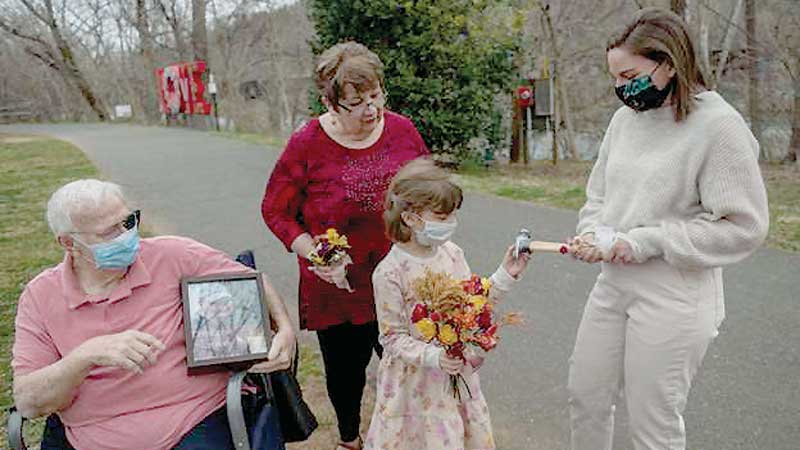

NEW YORK: A “staggering” 40,000 children in the US have lost at least one parent to coronavirus, three-quarters of them teenagers, a new model has calculated.
Researchers at Stony Brook University on Long Island estimated the number of children of each adult to have died of Covid-19 and
extrapolated to arrive at that conclusion.
The model suggested that each such death left 0.078 children between infancy and age 17 “parentally bereaved’’, the researchers said in a letter published in JAMA Pediatrics, 17.5 per cent to 20.2 per cent more than it would have been without Covid-19.
“Although the bereavement multiplier is small, it translates into large numbers of children who have lost a parent’’, wrote Rachel Kidman of the Program in Public Health at Stony Brook University.
“As of February 2021, 37,300 children aged 0 to 17 years had lost at least 1 parent due to Covid-19, three-quarters of whom were adolescents.”
Judging by excess deaths overall, the estimate goes even higher — to 43,000 children who’ve lost a parent in the past year.
Beyond the grief of losing a parent during one’s formative years is the difficulty of supporting the bereaved children during this time of heightened social isolation, as the pandemic drags on. Further, the authors said, deaths will mount, which means even more children will suffer this loss.
In comparison, she noted, the September 11, 2001, attacks led to 3,000 children losing a parent.
“The number of children experiencing a parent dying of Covid-19 is staggering,’’, Kidman wrote. “The burden will grow heavier as the death toll continues to mount.”
Moreover, Black children are disproportionately affected, given that they comprise 14 per cent of US children but 20 per cent of those who have lost a parent to Covid-19, the letter said.
The paper, based as it is on estimates built on demographic modelling rather than data from a survey or statistical information, is painting a broad, inexact picture, Kidman noted. It also does not include primary caregivers who were not a child’s parents.
She and her co-authors called for “sweeping national reforms” to support children who are in this situation. — dpa
Oman Observer is now on the WhatsApp channel. Click here



